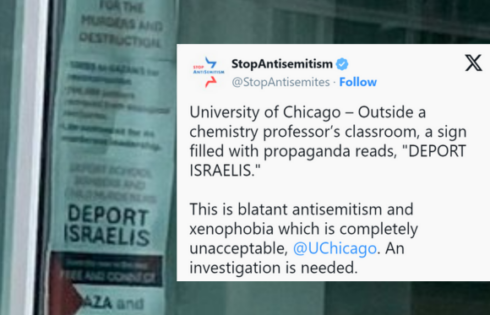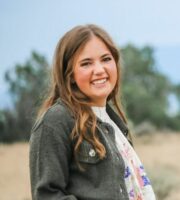
Public universities should be barred from spending on faculty and student dues and conference costs to academic organizations that take a political stance, group argues
Organizations such as the American Mathematical Society, American Society for Engineering Education and the American Physical Society have replaced academic pursuits with political advocacy — on the taxpayers’ dime — argues one conservative think tank that states it’s a practice that should end.
A recently published report from the American Enterprise Institute reviewed nearly 100 academic associations and found “81 percent have issued at least one official position on race or affirmative action, the Russian invasion of Ukraine, the Israel-Hamas conflict, immigration, or climate change.”
The vast majority of the positions took a left-leaning or progressive stance, according to the nine-page report, published in late August and titled “Scholarly Associations Gone Wild: Stop Publicly Funding Scholarly Groups That Trade Academics for Advocacy.”
On the heels of AEI’s report, Vanderbilt University Chancellor Daniel Diermeier published an op-ed in The Wall Street Journal on Friday arguing that “the trend of academic associations taking stands on political and social issues” is alarming.
He wrote that such stances chill debate, silence dissenting members, and erode the organizations’ legitimacy by turning them into advocacy groups.
“In our hypercharged political era, the pressures on university faculty have never been greater. Higher education must stand strong against politicization,” Diermeier wrote.
“That means universities and their leaders, but it must also include the associations whose influence shapes conversations and careers in the academy. To be meaningful, academic freedom must not end at the edge of campus.”
Yet it appears the opposite is occurring.
Fredrick Hess, director of education policy studies at the American Enterprise Institute, and Jay Greene, senior research fellow for the Heritage Foundation’s Center for Education Policy, argued in their co-authored report that academic associations have grown increasingly more political in recent years.
To solve the issue, they posit that taxpayer-funded public universities and colleges should not spend public funds on memberships and conferences supporting these associations.
They also propose that public universities should be barred from spending on faculty and student dues and conference costs to academic organizations that take a political stance.

Hess told The College Fix “we’re not suggesting that any funds be withdrawn from associations.”
“[W]e’re suggesting limits on how university faculty are permitted to use public funds,” Hess said via email, adding if public funds are used to fund student involvement with the groups, the same limits should apply.
Of the 80 scholarly groups that put out left-leaning statements in recent years, AEI estimated that public universities spent nearly $200 million annually on faculty dues and conference registrations, an estimate that does not include food and lodging.
“This politicization is corrosive to academic research, which requires that scholars be free to challenge strongly held assumptions and benefits from an academic community that makes room for discordant views and alternative analyses,” the report states.
The research found that of the 80 associations that took a stance, 88 percent took one on race or affirmative action, 60 percent on immigration, 35 percent on climate change, 34 percent on Ukraine, and 26 percent on the Israel-Hamas conflict. Three-quarters of the associations opined on multiple issues.
Both STEM and humanities associations published left-leaning stances on political and cultural issues. Ninety percent of the arts and sciences and roughly the same number of engineering groups took a stance on at least one subject, the report states.
For example, the American Mathematical Society both apologized for failing to fight racism and called for an “immediate halt to these hostilities and violations of international law” regarding the Russian invasion of Ukraine.
The American Society for Engineering Education, meanwhile, credited George Floyd’s death to “a pervasive pattern and practice of learned, ingrained, and automatic behaviors that have and will require persistent, consistent, and resistant action to limit and eventually reverse.”
The American Physical Society denounced the Russia-Ukraine conflict, advocated for actions to aid a society experiencing climate change, and stated its support for the Universal Declaration of Human Rights.
These statements and more can be found on their websites under “policy statements,” the report noted.
“There is no evidence of intellectual heterodoxy in the statements issued,” the report stated.
“They uniformly depict America as systemically racist, endorse race-based college admissions, oppose restrictions on immigration, deem climate change a catastrophic threat, denounce the Russian invasion of Ukraine, and oppose Israel’s military action in Gaza.”
American Mathematical Society, American Society for Engineering Education and the American Physical Society did not respond to The College Fix’s requests for comment.
Only two exceptions were found. In 2002, the American Physical Society spoke against boycotting Israeli scientists. In 2023, the Association for Jewish Studies said they “unequivocally condemn[ed] Hamas for killing and kidnapping hundreds in Israel, targeting civilians, and perpetrating horrific atrocities.”
MORE: Professors rally academics around ‘less bad’ candidate Trump
IMAGE: Garry L. / Shutterstock
Like The College Fix on Facebook / Follow us on Twitter






Please join the conversation about our stories on Facebook, Twitter, Instagram, Reddit, MeWe, Rumble, Gab, Minds and Gettr.